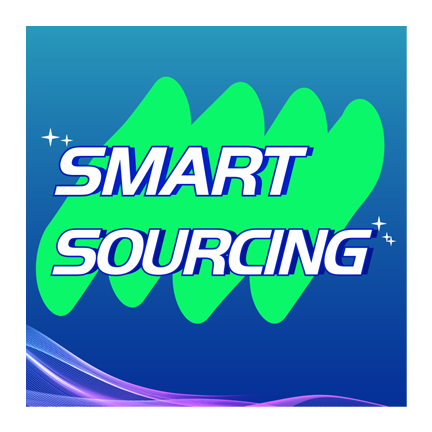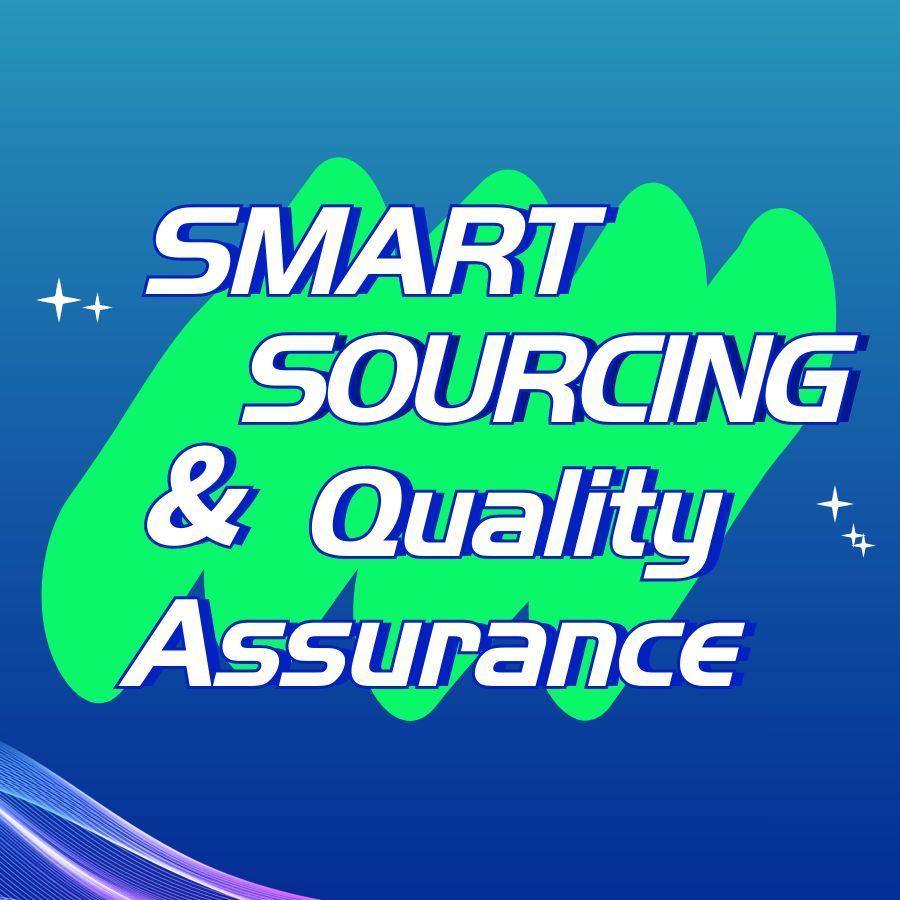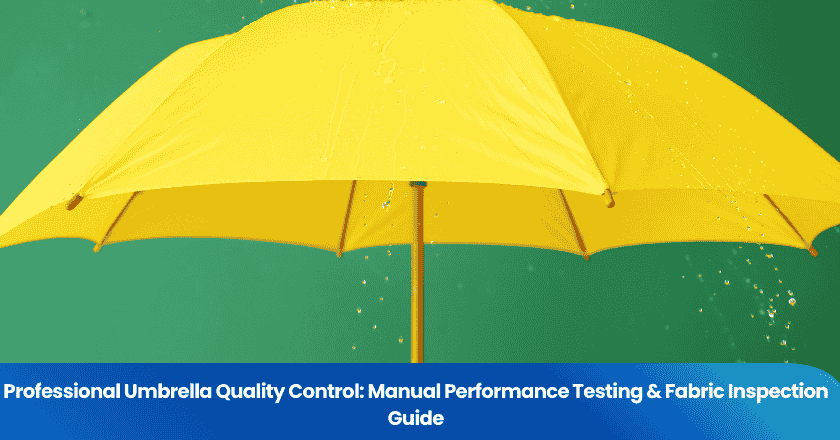
What are sourcing platforms?
Sourcing platforms, as the name suggests, are online platforms dedicated to providing procurement services for enterprises. Sourcing platforms provide enterprises with efficient and convenient procurement solutions by integrating procurement, supplier management, order processing, payment settlement and other functions.
Sourcing platforms simplify the cumbersome links in the traditional procurement process, and improve procurement efficiency and accuracy through digitalization and automation technology.
Sourcing platforms connect buyers and suppliers, providing a centralized marketplace where businesses can efficiently find, compare, and purchase the goods and services they need. Through these platforms, businesses can quickly find suitable suppliers, post procurement requirements, compare prices and quality, and make more informed purchasing decisions.
The role of sourcing platforms in modern business and global trade
With the rapid development of globalization and the rapid advancement of information technology, e-commerce has gradually become an important part of global trade. Sourcing platforms, as one of the fundamental infrastructures of e-commerce, play an indispensable role in modern business and global trade.
Sourcing platforms have broken the geographical and time constraints in traditional trade methods, allowing buyers and sellers to conduct transactions through the platform anytime and anywhere, improving the efficiency and convenience of transactions.
By connecting global buyers and sellers through the Internet plus, sourcing platforms rapidly expand the market scope to the whole world, providing opportunities for small and medium-sized enterprises to enter the international market and enhancing their competitiveness.
The large amount of transaction data accumulated on sourcing platforms can be analyzed and utilized to help buyers and sellers better understand market demands and trends, enabling customized production and precise marketing. Sourcing platforms provide detailed supplier information and transaction records, enhancing the transparency and traceability of the procurement process.
By participating in global sourcing competitions, companies can continuously improve their product quality and service levels, enhancing their international competitiveness. Sourcing platforms also provide companies with opportunities to understand international market demands and trends, which helps them formulate more scientific market strategies.
With the continuous development of global trade, international trade rules and standards are also constantly being improved. As an important part of international trade, sourcing platforms actively participate in the construction of international trade rules, contributing to the promotion of the normalization and standardization of international trade.
What are the key features of efficient sourcing platforms?
Sourcing platforms, as an important component of international trade, are an essential part of the business ecosystem. How do we choose an efficient sourcing platform? What are the characteristics of an efficient sourcing platform?
Generally speaking, efficient sourcing platforms need to have the following key features:
User-friendly interface and experience
The platform should have an intuitive and easy-to-use user interface, enabling users to easily navigate and search for the products or services they need. Provide a personalized user experience, recommending relevant suppliers or products based on the user's sourcing history and preferences. Support searching and filtering based on various criteria such as keywords, price, brand, and more.
A wide range of suppliers and product coverage on sourcing platforms
Efficient sourcing platforms should gather a large number of verified high-quality suppliers, providing a diverse selection of products. Covering multiple industries and fields, they meet the different procurement needs of enterprises. They offer comprehensive supplier information and evaluation systems to help companies choose the best suppliers. Detailed product information is provided to help enterprise users quickly find the right products. Real-time monitoring of supplier quality, delivery times, and after-sales service ensures the stability and reliability of the supply chain.
Real-time updated price and inventory information
The platform should display suppliers' prices and inventory status in real time to ensure users get accurate information. Provide price comparison tools to help users find the most cost-effective sourcing platforms.
Efficient sourcing platforms processes and tools
Simplify the procurement process, reduce cumbersome procedures and steps, and improve procurement efficiency. Provide electronic procurement tools, such as electronic contracts, electronic invoices, etc., to reduce the use of paper documents. Transparent procurement process, real-time tracking of order status
Powerful data analysis and reporting capabilities
The platform should be able to analyze sourcing data, providing detailed reports on sourcing trends, cost savings, and supplier performance. It helps businesses make more informed sourcing decisions and optimize supply chain management. Real-time price comparisons and historical price analysis help businesses make smart sourcing decisions.
Outstanding customer support and service on sourcing platforms
Provide timely customer support to answer questions users encounter while using the sourcing platforms. Regularly collect user feedback to continuously improve the functionality and service quality of the platform.
High security and compliance
Offering a variety of payment methods and guarantee mechanisms to ensure the safety and reliability of transactions, and having a transaction dispute resolution mechanism to protect the rights and interests of both buyers and sellers. Ensuring the security of user data, adopting advanced encryption technology and security measures to protect user privacy. Compliance with relevant laws, regulations, and industry standards to ensure the compliance of sourcing platforms.
Flexible integration and scalability
The platform should be able to integrate seamlessly with the enterprise's existing ERP, CRM and other systems to achieve data sharing and process collaboration. It should have good scalability and be able to customize and expand according to the growth and development of the enterprise.
These features collectively constitute the core competitiveness of efficient sourcing platforms, allowing them to fully display their abilities and charm in the fierce market competition.
How to choose the right sourcing platforms?
Choosing the right sourcing platforms is a key step for companies to optimize procurement management and improve procurement efficiency and quality.
Here are some suggestions to help companies make informed decisions when choosing sourcing platforms:
Clearly define sourcing platforms needs
Before selecting sourcing platforms, enterprises should first clarify their procurement needs, including the types, quantities, and frequency of products or services to be purchased. Determine procurement goals, including improving procurement efficiency, reducing procurement costs, and optimizing inventory management.
Research the market and suppliers
Conduct research on the sourcing platforms in the market to understand the characteristics, advantages, user reputation, etc. of each platform. Study the qualifications, product quality, price, delivery capabilities, etc. of potential suppliers to ensure that the selected platform can provide supplier resources that meet the requirements of the enterprise.
Consider the functionality and ease of use of sourcing platforms
Detailed inspection of the platform's functional modules, service quality, and user experience is conducted to ensure that the platform meets the actual needs of enterprises. Select a sourcing platforms that is fully functional and easy to use according to the specific needs of the enterprise, ensuring that it can meet the needs of enterprise procurement process management, supplier management, contract management, data analysis, etc. Ensure that the platform has a user-friendly interface, is easy to operate, and provides a personalized user experience.
Assess the security and compliance of sourcing platforms
Ensure that the selected platform has advanced security measures, such as data encryption, access control, etc., to protect the sensitive information and transaction data of the enterprise. Check whether the platform complies with relevant laws, regulations, and industry standards to ensure the compliance of sourcing activities.
Considering costs and benefits
Evaluate the cost structure of the selected sourcing platforms, including registration fees, transaction fees, service fees, etc., to ensure that the cost-benefit is reasonable. Consider whether the platform can provide sufficient value, such as reducing procurement costs, improving procurement efficiency, optimizing supplier management, etc., and choose a platform with high cost performance to ensure a reasonable return on investment and support the long-term development of the enterprise.
Seeking user feedback and recommendations
Engage with other businesses that have used sourcing platforms to understand their experiences and feedback. Seek recommendations within the industry to learn which platforms perform well in specific sectors or domains. Review the reviews and feedback from other users to understand how the platform performs in practical applications and avoid choosing platforms with poor reputations. Determine if the platform has a rich supplier resource, and assess the quality and credibility of the suppliers to select suitable partners.
Conduct pilot and evaluation on sourcing platforms
Before making the final decision, one or more sourcing platforms can be selected for pilot operations. Evaluate the user experience, functional satisfaction, supplier response, and other aspects during the pilot period to make the final selection.
By considering these factors comprehensively, companies can choose the sourcing platforms that best suit their own needs, thus achieving optimization of procurement activities and improvement of benefits.
How will sourcing platforms develop in the future?
The future development trends of sourcing platforms can be summarized into the following key points:
Intelligence and automation
In the future, artificial intelligence will play a greater role in sourcing forecast analysis, process optimization, and other aspects, enhancing the intelligent level of procurement.
With the continuous iteration of technologies such as big data, cloud computing, and artificial intelligence, sourcing platforms will integrate more of these advanced technologies to achieve the intelligence and automation of the procurement process.
For example, AI can drive the optimization of sourcing platforms, enable intelligent decision-making, and empower efficient data analysis, precise decision-making, and excellent management.
AI will play an important role in data integration, real-time monitoring, risk identification, etc., improving sourcing efficiency and accuracy through automated processing, and reducing human errors.
Digitalization and Collaboration
Sourcing platforms will no longer be limited to the procurement phase, but will extend to the entire industry chain including R&D, logistics, production, and sales, achieving digital collaboration across the entire chain. This will enhance the overall efficiency and transparency of the supply chain.
Sourcing platforms will pay more attention to the collaboration between suppliers and demanders, through digital means to achieve real-time information sharing and resource optimization, reduce communication costs, and improve cooperation efficiency.
Greening and Sustainability
With the increasing awareness of environmental protection, green sourcing will become an important trend for sourcing platforms in the future. The platforms will pay more attention to promoting green products, optimizing sourcing strategies, and reducing the impact on the environment.
As environmental and social governance (ESG) objectives become increasingly important, sustainable sourcing will become a significant development direction for sourcing platforms. More sourcing platforms will be committed to building a more sustainable supply chain ecosystem, achieving resource conservation and recycling through digital means, and promoting the green transformation of the supply chain.
Personalization and customization
With the diversification of market demands, sourcing platforms will pay more attention to meeting the personalized needs of users. Through data analysis and technical means, the platform can provide users with more accurate recommendations and services.
In response to the special needs of different industries and enterprises, sourcing platforms will provide more customized solutions to help enterprises achieve more efficient procurement management.
Competition and cooperation coexist
With the continuous development of the sourcing platforms in the digital procurement market, industry competition will become increasingly fierce. Enterprises need to continuously improve their technological strength and service levels to remain invincible in the market.
Cooperation will also become an important trend in the development of sourcing platforms in the future. By collaborating with other companies, platforms, or institutions, they can jointly promote the progress and development of the industry, achieving a win-win situation.
Combining globalization with localization
Balancing global sourcing platforms with local sourcing to reduce risk and ensure flexibility. Digital sourcing will become more prevalent, with remote communication and online sourcing becoming the norm for corporate procurement.
By understanding the definition, functions, selection criteria, and future development trends of sourcing platforms, companies can better utilize these tools to optimize their procurement processes. Based on their own needs and actual circumstances, companies consider multiple factors to select efficient, secure, and reliable sourcing platforms, in order to enhance procurement efficiency, reduce procurement costs, optimize supply chain management, and provide strong support for the development of the enterprise.

Smart Sourcing Content Team
Article by Smart Sourcing Content Team
The Smart Sourcing Content Team is committed to delivering high-quality, easy-to-understand information that helps our audience navigate the complexities of global sourcing. Our team of writers has extensive experience in producing articles across various fields such as procurement, supply chain management, market trends, and industry best practices. We specialize in sectors like apparel, textiles, and consumer goods, providing targeted insights to help businesses in these industries optimize their sourcing strategies and stay competitive.
Grow your business with TradeAider Service
Click the button below to directly enter the TradeAider Service System. The simple steps from booking and payment to receiving reports are easy to operate.






